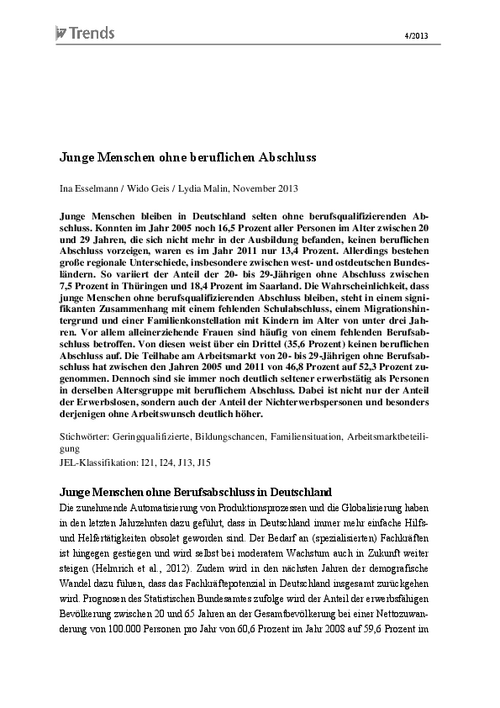Few young people in Germany fail to obtain a vocational qualification. While in 2005, 16.5 per cent of all those between the ages of 20 and 29 years who were no longer in for-mal education had no vocational training, by 2011 this figure had fallen to 13.4 per cent. However, there are considerable regional differences, particularly between western and eastern German states. Thus the proportion of unqualified 20- to 29-year-olds varies between 7.5 per cent in Thuringia and 18.4 per cent in the Saarland. The probability of young people failing to obtain a vocational qualification correlates significantly with the lack of a school-leaving certificate, a migration background and a family constellation with children under three years of age. Single mothers are significantly less likely to complete formal training, with over a third (35.6 per cent) lacking a qualification. Participation in the labour market by 20- to 29-year-olds without a vocational qualification increased between 2005 and 2011 from 46.8 to 52.3 per cent. Nevertheless, they continue to be employed consider-ably less often than persons in the same age group with a formal qualification. Indeed, not only the proportion of unemployed is considerably higher but also the share of those economically inactive and particularly those not seeking work.
Download | PDF


